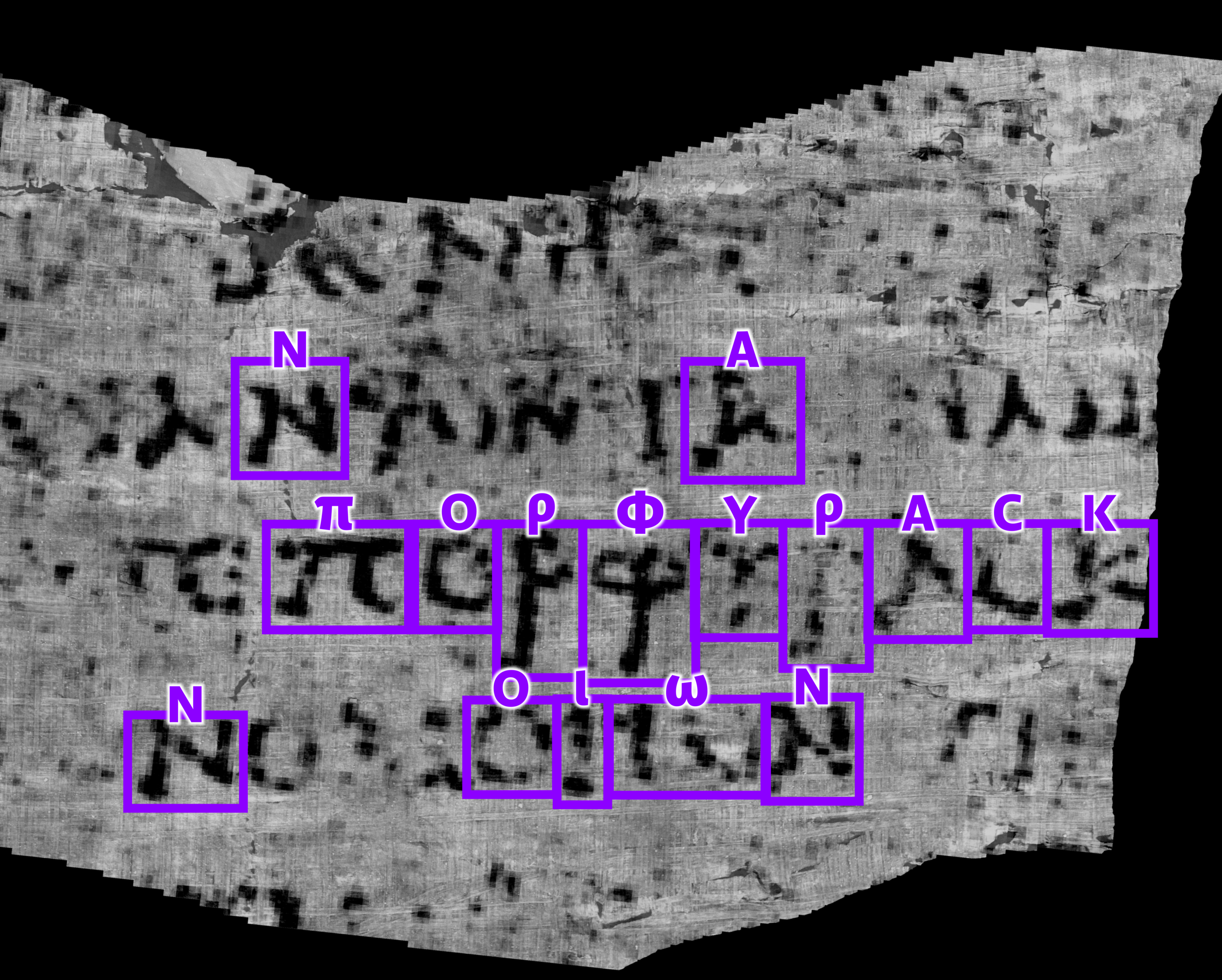
In the year 79, AD Mount Vesuvius erupted, burying both Pompeii and Herculaneum. In 1750, an Italian farmworker discovered an entombed seaside villa in Herculaneum while digging a well. When excavated, the residence yielded hundreds of scrolls, all of them turned into what looked and felt like lumps of ash, and practically all of them unrollable, let alone readable. Only in 2015 did humankind — or more specifically, University of Kentucky computer scientist Brent Seales and his team — develop the technology that could let us see what texts these ancient scrolls contain. Eventually, a particle accelerator and machine learning came into play. This timeline comes from the web site of the Vesuvius Challenge, “a machine learning and computer vision competition to read the Herculaneum Papyri.”
Funded by technology entrepreneurs Nat Friedman and Daniel Gross, the Vesuvius Challenge has given out $260,000 of its $1 million of prizes so far, including $40,000 to undergraduate student/engineer Luke Farritor, who identified ten letters in a section of one scroll, and $10,000 to biorobotics graduate student Youssef Nader, who subsequently and independently discovered those same letters.
The word they form? Porphyras, ancient Greek for “purple”: a color, incidentally, that signified wealth and power in the ancient world, not least because of the enormous amount of labor required to extract it from nature. That the Herculaneum Papyri have started to become readable also represents the culmination of a similarly impressive effort, albeit one based on technological development rather than the extraction of sea-snail glands.
As Nicholas Wade writes in the New York Times, the current method “uses computer tomography, the same technique as in CT scans” — executed with the aforementioned particle accelerator — “plus advancements in artificial intelligence” used “to help distinguish ink from papyrus.” You can learn more about the Vesuvius Challenge in the video above. Its creator Garrett Ryan, of ancient-history Youtube channel Told in Stone, has been previously featured here on Open Culture for his explanation of how 99 percent of ancient texts were lost — which means these charred scrolls could hold a great deal of knowledge about the ancient world. Do they contain, as Ryan fantasizes, the lost books of Livy, the dialogues of Aristotle, poems by Sappho? We’ll only know when someone figures out how best to use technology to decode them all. Artificial intelligence may be the key to the future, as we’ve often heard in recent years, but in this particular case, it offers a promising key to the past.
Related content:
Pompeii Rebuilt: A Tour of the Ancient City Before It Was Entombed by Mount Vesuvius
How 99% of Ancient Literature Was Lost
A Newly-Discovered Fresco in Pompeii Reveals a Precursor to Pizza
Based in Seoul, Colin Marshall writes and broadcasts on cities, language, and culture. His projects include the Substack newsletter Books on Cities, the book The Stateless City: a Walk through 21st-Century Los Angeles and the video series The City in Cinema. Follow him on Twitter at @colinmarshall or on Facebook.


Leave a Reply